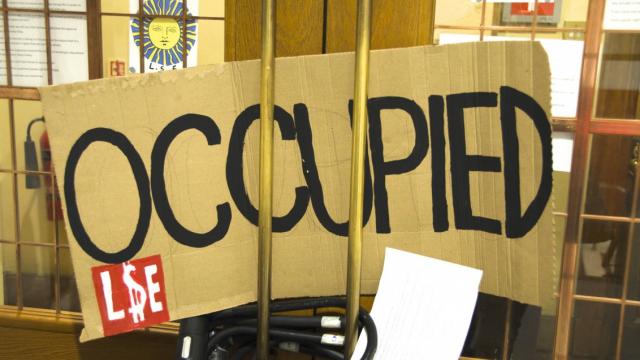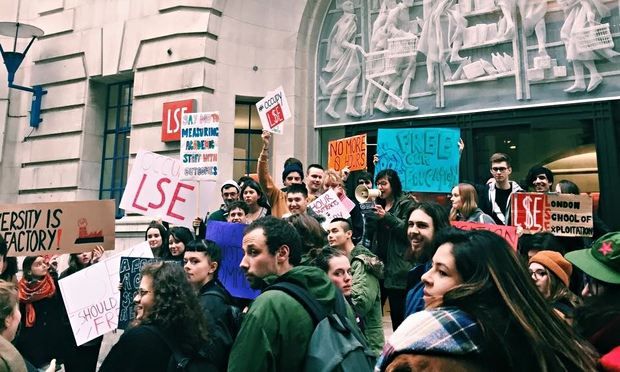
It is less than a week into the new government and some of us would love nothing more than to run screaming for the hills. Yet, amid this bleak political landscape, students have been occupying their universities.
Over the last six weeks we occupied the London School of Economics. Our demands concerned issues of free education, workers’ rights, university democracy, divestment and liberation on campus. Nine of our demands were met, after five hours of negotiations with the vice-chancellor. The occupation ended on the night of April 30 on agreed terms that these demands will be followed through.
This was after university management threatened legal action against us and subsequently eviction; however it was agreed that neither of these would be pursued on our exit.
All lectures at LSE will now be open to the public; there will be a review of their so-called flexible-hours contracts; and there will be provision of a permanent, autonomous space for “dissent” and political discussion.
We can certainly say that we made change to our university. But what’s more, we occupied to remedy a feeling of profound political alienation and powerlessness: overcoming this was our greatest achievement.
This sense of alienation comes from the trend of young people being increasingly pitted against each other, fighting for the same precarious jobs and terrified of taking risks while burdened with unprecedented debt. Five more years and this situation will only worsen.
The Conservative party has refused to rule out lifting the cap on tuition fees. On top of this, its commitment to further benefits cuts will likely have a disastrous effect on already vulnerable, marginalised and excluded sections of the student population, such as migrants and disabled students.
Now is the time to re-energise the student movement and to pledge to resist further changes to our education system.
Why Occupy?
An occupation is not just about locking yourself in a room and demanding the terms of exit. Taking the space and calling it our own was crucial.
Benolas Tippet, a master’s student at LSE, says: “It’s the stereotype that young people are apathetic. They are not apathetic, they are alienated, and this is what the occupation showed. Hundreds of students got involved to voice their concerns about how their university is run.”
We made open discussions and lectures integral to the movement and all were encouraged to participate: students, academics and staff. This created an atmosphere of collective learning and political empowerment. From David Graeber to Owen Jones to student occupiers, anyone could organise or deliver a workshop.
As another LSE occupier, Kasia, said: “The occupation managed to fill the air with the sense that education is ours – not yours or mine to have.”
Our experience was that many people were simply waiting for this opportunity. The space was a crack in the fabric of daily, de-politicised, life on LSE campus.
LSE is widely known for the high proportion of its graduates who end up working in the City. The university perpetuates a very specific and – in our view – very destructive monolithic world vision. While, of course, this ideal is precisely the appeal of LSE for many, it alienates others.
We look back to the time when the LSESU organised a hunger strike in 1968, and in 2010 when it ran a campaign on free education. This is the union that now organises the regular presence of banks and corporations on campus.
When university management try to criminalise dissent and discipline us for it, they are not just attacking students, but also the right to political expression. Cracking down on expressions of discontent is necessary to force through neoliberal reforms of the higher education sector.
A high-profile action like an occupation risks exposing the inequitable and inhumane reality behind these reforms. And worst of all for the management is the prospect that reputational damage scuppers their expensive marketing campaigns.
We have shown that occupations work and that students must articulate themselves. This is what education should look like – and what the current, fees-based system can never provide. It must be creative, political, imaginative, inclusive and university must be a space where critical discussions about our society take place.
At LSE we were not alone, we are part of a broader movement, a new university movement that fights for an education that is democratic, liberated and free.
3 WAYS TO SHOW YOUR SUPPORT
- Log in to post comments














